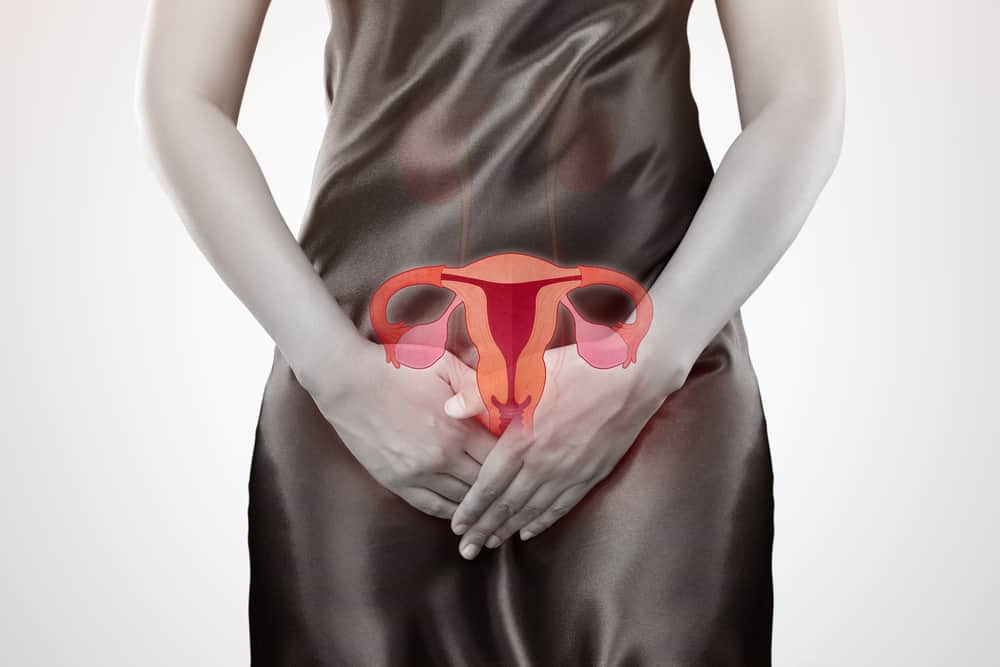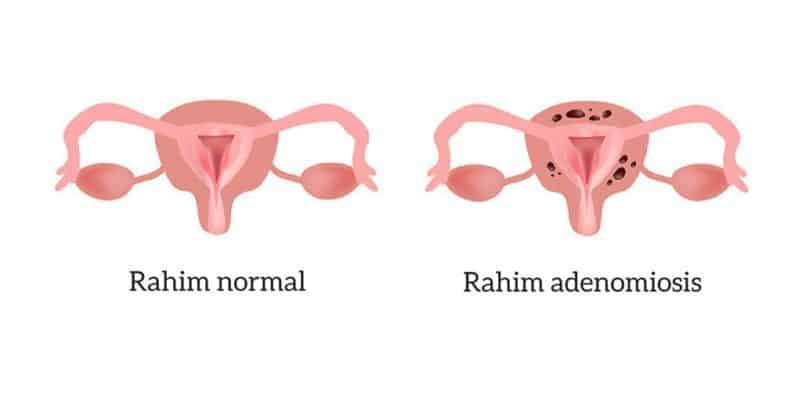Contents:
- Medical Video: Endometriosis
- What is adenomyosis?
- Various symptoms of adenomyosis
- Causes of adenomyosis
- Who is at risk for adenomyosis?
- What are the complications of adenomyosis?
- Treatment options for adenomyosis
Medical Video: Endometriosis
Adenomyosis is abnormal tissue growth in a place that is not supposed to. This condition can cause a variety of uncomfortable symptoms such as long menstruation to pain during sex. To understand more about this condition, see the full review below.
What is adenomyosis?
Adenomyosis is a condition when the endometrial tissue (the tissue that lines the uterus) is inside and grows through the uterine muscle wall (myometrium). This makes the uterine wall become thicker. Meanwhile, endometrial tissue continues to thicken and decay every month which is released through menstruation.
As a result, bleeding that occurs can be heavier and longer than usual. People who experience adenomiois will also experience pain during menstruation.
Various symptoms of adenomyosis
Not all people experience certain symptoms when suffering from adenomyosis. Some women only feel a few complaints and others feel quite severe symptoms. The following are various symptoms of adenomiois that are generally felt, namely:
- Prolonged menstrual duration.
- Abdominal cramps are quite severe, such as painful menstruation (dysmenorrhea).
- The presence of blood clots during menstruation.
- Pain during intercourse.
- The lower part of the abdomen looks bigger and softer to the touch.
- Blood spots appear when you are not menstruating.
Causes of adenomyosis
Experts cannot determine exactly why adenomyosis can occur. However, various studies show that the hormones estrogen, progesterone, prolactin, and disturbed follicle stimulating hormones can trigger this condition. Here are various possibilities that can be the cause of adenomyosis.
- An abnormal tissue growth called adenomyoma of endometrial cells which eventually pushes itself into the uterine muscle. This is most likely caused by an incision made in the uterus during surgery such as a caesarean section.
- The presence of excess tissue in the uterine wall formed since the fetus and grows with age.
- Inflammation of the uterus that occurs after labor.
- Stem cells in the uterine muscle wall which invade the uterine muscles themselves.
Generally, this symptom can improve on its own when the estrogen hormone levels in the body decreases, namely after menopause (12 months after the end of the menstrual period). However, you can also need medical help. To make sure, immediately consult a doctor.
Who is at risk for adenomyosis?
Quoted from Healthline, there are three things that make a woman at high risk of experiencing adenomyosis, namely:
- 40-50 years old (period before menopause).
- Women who already have children (have given birth).
- Have experienced uterine surgery such as a caesarean section or uterine fibroid surgery.
What are the complications of adenomyosis?
Adenomyosis is not always dangerous. However, the pain and prolonged duration of menstruation are enough to interfere with sufferers' activities both daily activities and sexual activity. In addition, women with adenomyosis are also at risk of developing anemia due to prolonged bleeding. As a result, this condition can cause fatigue, dizziness, and moodiness.
In some cases, adenomyosis is a condition that can make you too nervous and anxious. If left unchecked, this can lead to depression.
Treatment options for adenomyosis
Adenomyosis is a disease whose symptoms can be controlled, although it may not be able to heal completely. Treatment for adenomyosis depends on the symptoms, severity, and condition of the uterus.
Doctors will prescribe nonsteroidal anti-inflammatory drugs (NSAIDs) to reduce mild pain in one or two days before menstruation begins. In addition hormone therapy, endometrial ablation (destruction of endometrial tissue), hysterectomy (removal of the uterus), and uterine artery embolization can be used as treatment options depending on the results of the doctor's diagnosis.
However, so far hysterectomy or uterine lift procedure has become one of the most effective treatments for adenomyosis with quite severe symptoms.
If you experience one or more symptoms that refer to adenomyosis, don't hesitate to see a doctor to get the best treatment.













